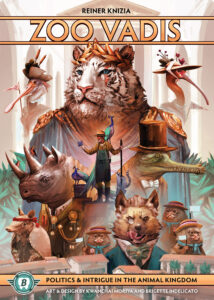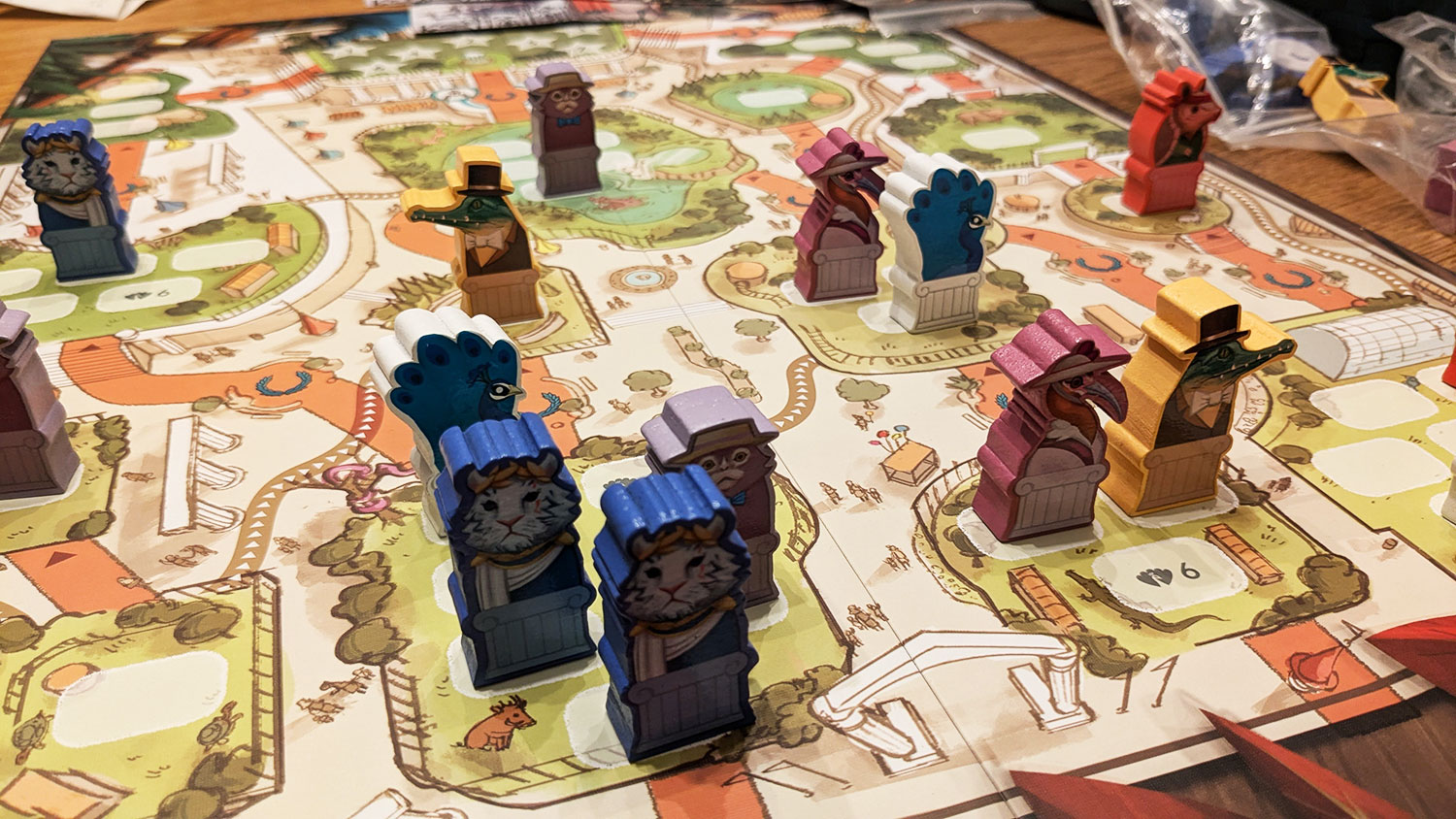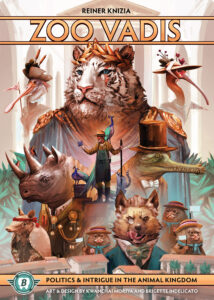 Let’s say you’re, oh I don’t know, an Armadillo. You live in a zoo, and therefore, your deepest desire is to become the zoo’s star attraction. Surely every animal in the zoo dreams of being the most gawked at living thing in any cage in the complex, right? So what else is there to do but to politick and position your way to the top, wheeling, dealing, and betraying until you’re sitting pretty in the place of honor, a steady march to the top of the zoo hierarchy.
Let’s say you’re, oh I don’t know, an Armadillo. You live in a zoo, and therefore, your deepest desire is to become the zoo’s star attraction. Surely every animal in the zoo dreams of being the most gawked at living thing in any cage in the complex, right? So what else is there to do but to politick and position your way to the top, wheeling, dealing, and betraying until you’re sitting pretty in the place of honor, a steady march to the top of the zoo hierarchy.
If this doesn’t make much sense to you, don’t worry, it doesn’t for me either, but that certainly doesn’t stop Zoo Vadis—the reboot of Reiner Knizia’s somewhat obscure classic Quo Vadis?—from being an absolute masterpiece. I’ll get to my gripes about the nonsensical nature of the zoo animal retheme of Knizia’s game about politics and intrigue in ancient Republican Rome, but first, let’s dive into this fantastic 3-7 player negotiation game from Bitewings Games.
Gameplay Overview:
In Zoo Vadis, each player controls a faction of animals, all vying for prestige and the chance to be displayed in the Star Exhibit. Each animal faction has an asymmetric power as well (more on that shortly). While traveling through the minor exhibits, on their way to reach the Star Exhibit at the top of the board, animals pick up laurel tokens, which act as both victory points and currency. Once all the spots in the Star Exhibit are filled, the game ends, and the player who has the most points AND at least one animal in the Star Exhibit wins the game. Animal factions that did not make it to the Star Exhibit are not eligible to win (oh, Reiner, you and your wacky win conditions!). On your turn, you can take one of four actions:
The game is deceptively simple, that is literally 90% of it. But what makes this game shine is the asymmetric animal powers. Each animal faction has a very powerful and thematic ability and everyone begins with 2 tokens representing one use of that power. The rub is that you CANNOT USE THAT POWER ON YOURSELF. That’s right, it’s a thing to be sold, not a thing to be used.
For example, returning to our friendly Armadillos, these creatures are incredible at tunneling and offer animals potential shortcuts between exhibits. But they can’t take those shortcuts themselves, they can only sell those tunnels for a price they see fit. The massive Rhinos can give another animal a little of their hefty power to carry another animal with them into the next exhibit. Ibises allow an animal to crowd into an already full exhibit. These powers are all game changing to varying degrees, and your ability to sell them will influence how many points you get. In fact, your ability to sell just about EVERYTHING will influence how many points you get and whether you win the game.

Game Experience:
Zoo Vadis is never a bad time. I have never played this game and not absolutely laughed my hyena-loving ass off. Well, if you’re the type of person who likes to quietly min/max your game, plan your turns, and pretend like the rest of the world doesn’t exist, this isn’t for you. If that is the case, my guess is you’re not a fan of negotiation games anyway. When it comes to this genre, this has jumped to the top of the pack, at least for ones that play in around an hour.
Fortune favors the loudmouth, and frequently, the person who talks most wins. The key to success lies in your ability to read your opponents, forge alliances, deftly backstab, and make beneficial trades. The absolutely ingenious addition of asymmetric powers that must be sold is one of the things that takes this game from its origins as a dry Roman-themed chin-stroker to a laugh-out-loud cartoonish chuckle-fest.

The game shines at 5-7 players. I would play it at 4, but I don’t think I’d play at 3 again. You need the element of a peanut gallery firing shots at you and audibly reacting to your attempted trades with other players, and 3 players feels like a table missing one leg. One of the best experiences is hearing someone attempt to pull off some sort of agreement, an exchange of favors or laurel tokens or animal powers, and to simply swoop in and disrupt it with your own, better offer. You’ll never enjoy getting absolute eye-lasers fired into your dome by a jilted would-be trade partner more than you do in this game.
The art is also phenomenal. While I’ll have a few words to say about every damn board game being populated by anthropomorphic animals in a moment (skip the next paragraph if you’re not interested in hearing about that), the execution of the art is fantastic. The animals truly embody their personalities beautifully, and for reasons I don’t understand but have no complaint with, many of the animals appear to be giving 1920s flapper, suffragette, and prohibition-era vibes. The tigers retain the one whiff of the original theme, going full Roman emperor, while the rhinos appear to be some sort of military strongman and the armadillos are guerilla fighters. They all look great, even if they make no thematic sense, but hey, theme got tossed into the dustbin of history with this game anyway.

Ok, so let me get this one thing off my chest and I promise I won’t bring it up in a future review of some teddy bear stock market game or whatever. WHY DOES EVERYTHING HAVE TO BE ANTHROPOMORPHIC ANIMALS? We saw it with Libertalia, we saw it with Air, Land and Sea, we saw it with Racoon Tycoon and GoodCritters. We’ve also seen what happens when games that center on difficult subjects retain their historical origins, like Viticulture World, which led to everyone losing their damn minds.
The Rootification of many games in the hobby, including reboots like Zoo Vadis, reveals a quirk in board gaming (but really, just general discourse) that is increasingly ridiculous. Or, if you’d like it in the political parlance of our times, “weird.” A war game is still a war game, whether it’s a bear blowing up a bunny or an American soldier blowing up a German. The raccoon is still a money-thirsty industrialist. The Goodcritters are still corrupt politicians or underworld gangsters. But at the end of the day, for most people who are deeply involved in the hobby, we remain adults. Adults who should be able to emotionally deal with and even perhaps show interest in the historical provenance of a game like Quo Vadis?.

Being a man in my 40s, I became interested in Roman history a few years ago (Yes, I’m a cliché. No, I don’t care). The cursus honorum, which is actually what Quo Vadis? (which translates to “Whither goest thou”) was originally based on, is the sequential order of public offices held by aspiring politicians in the Roman Republic and the early Roman Empire, and this is actually what this game is about. It makes perfect sense! You’re not moving from zoo exhibit to zoo exhibit, you’re moving from quaestor to aedile to praetor to consul.
Zoo Vadis means absolutely nothing, and it makes no sense for the zoo animals to try to be a star attraction in the zoo (again, essentially a prison for animals). So in the hobby’s noble (or overly cautious) attempts to erase any element of controversy, boring history, or for lack of a better term, “beigeness,” from the game and make it “more appealing to the masses,” it can sometimes lose all meaning and intention. It also has the potential to insult our intelligence or level of maturity. And look, Zoo Vadis has been a smash success for Bitewing. I’m very happy for them and, as I’ve clearly laid out here, I love the game. I’m just saying Zoo Vadis is, thematically, nonsensical. It’s certainly not the first thematically nonsensical game ever made, and it’s clearly been a smart marketing decision for them. I guess I just had to go Abe Simpson here for a second and shake my fist at a cloud. Ok, screed over, back to the fun.
Final Thoughts:
At the end of the day, Zoo Vadis is a triumph. It’s a game I’ll be playing for years to come, and as my age-addled mind gets older and older, I’m sure I’ll start to forget what the original thematic intent of this game was I’ll turn into a content little sack of potatoes, happy to be wheeling and dealing with marmosets and alligators. After all, who doesn’t want to be the Star Attraction!?
Final Score: 4.5 Stars – The best 60-minutes-and-under negotiation game out there. Period.
 Hits:
Hits:
• Plays quickly
• Plays up to 7 players very smoothly
• Great art
• Hilarious interactions
Misses:
• Thematically incoherent
• Would not recommend at 3-players
Source: Board Game Quest





